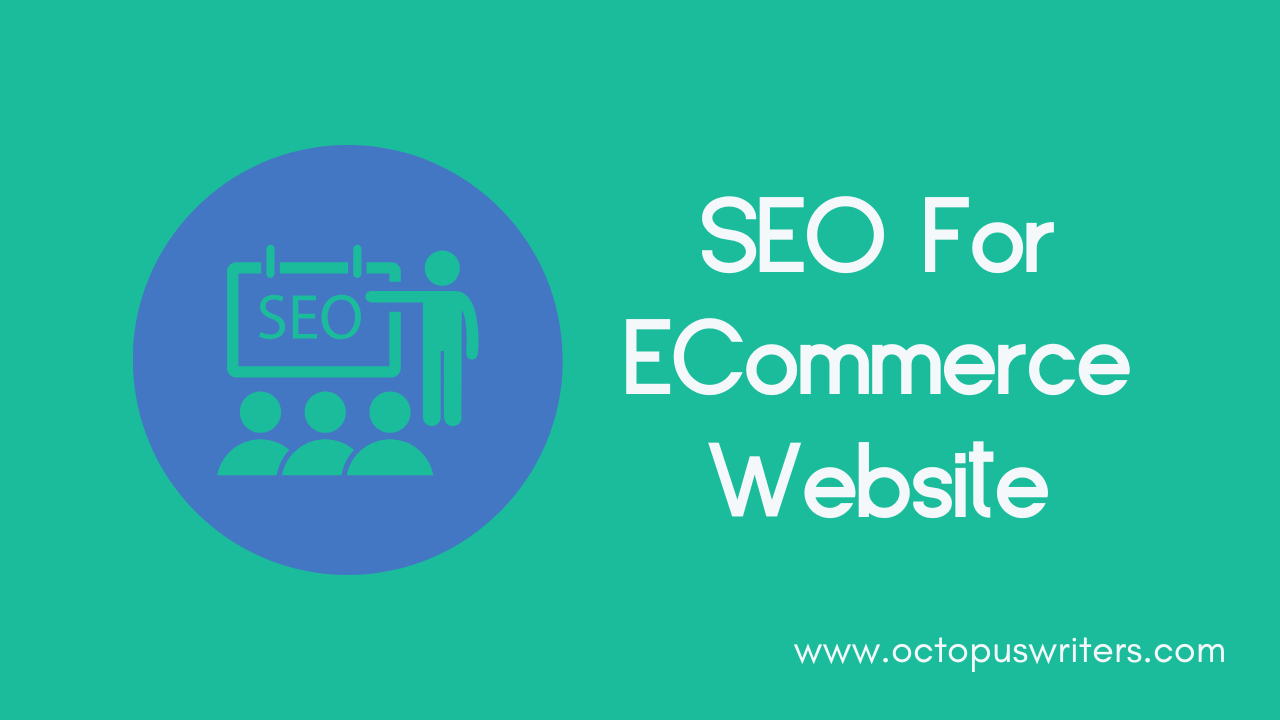Establishing a strong online presence has become a fundamental requirement for businesses navigating the ever-evolving digital landscape. As competition intensifies, particularly in the e-commerce sector, simply having a website is no longer enough to attract and retain customers. Instead, businesses must employ targeted strategies like SEO for ecommerce website to stand out and stay visible in search engine results.
For e-commerce platforms, search engine optimization (SEO) serves as the driving force behind attracting valuable organic traffic, fostering trust, and ensuring long-term visibility. By refining how search engines perceive and rank your site, SEO can transform an ordinary online store into a thriving hub for conversions.
This comprehensive guide of OctopusWriters explores proven strategies and advanced techniques to help you optimize your e-commerce website, outpace competitors, and create a seamless shopping experience for your audience.
What Is SEO For ECommerce Website?
SEO For ECommerce Website refers to the process of optimizing online stores to improve their visibility in search engine results pages (SERPs). Unlike traditional websites, e-commerce platforms are often more complex, featuring hundreds or even thousands of product pages, categories, and multimedia elements. Effective SEO for e-commerce involves tailoring strategies that not only attract potential customers but also guide them seamlessly through the purchasing journey.
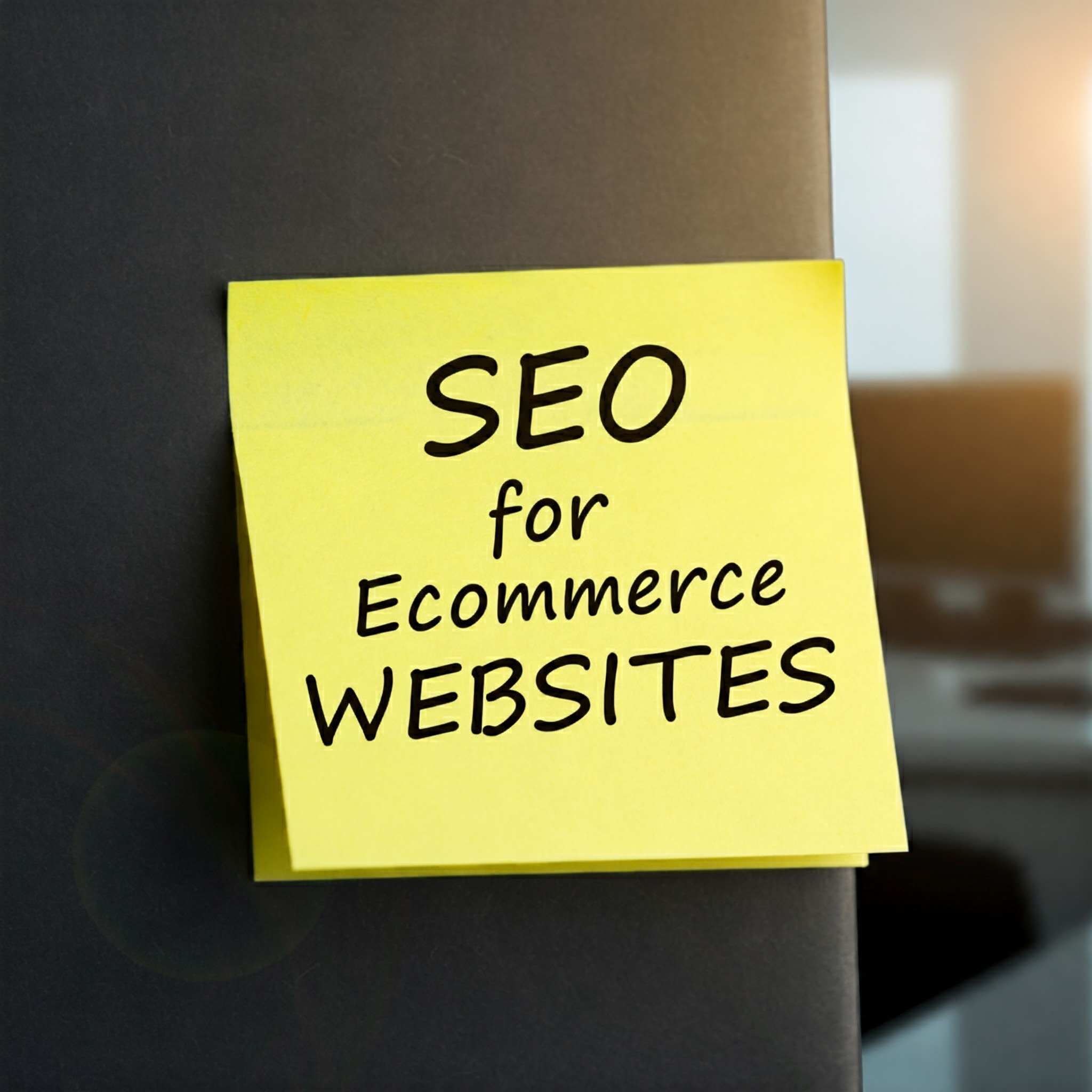
This specialized form of SEO focuses on enhancing both technical and content-related aspects of your website. It ensures that search engines can easily crawl, index, and rank your pages while providing users with a smooth, engaging shopping experience. Key elements of e-commerce SEO include optimizing product descriptions, using high-intent keywords, improving site speed, and implementing structured data to stand out in search results.
By mastering SEO for ecommerce website, businesses can achieve higher organic traffic, better conversion rates, and sustained growth. It’s a critical tool for standing out in today’s crowded online marketplace and connecting with customers at the exact moment they’re ready to make a purchase.
Why Is SEO Important for ECommerce Success?
Why is SEO for ecommerce website such a vital component of your business strategy? Simply put, it directly supports your ability to meet key business objectives—and the numbers back this up.

According to the 2023 Impact of SEO & Content Marketing Survey, a staggering 82% of marketers reported that SEO positively influenced their overall marketing performance and helped them achieve their goals. Even more impressively, 50% noted that SEO had a significant, measurable impact. These results underscore the role of SEO as a cornerstone of effective digital marketing.
This trend is expected to grow as businesses increasingly prioritize the long-term value of SEO over the short-lived benefits of paid search advertising. While paid ads may deliver quick results, they come at a high cost and are difficult to sustain over time. In contrast, a well-executed SEO for ecommerce website strategy is more cost-effective and generates lasting results.
Visibility is everything when it comes to search engine rankings. Studies reveal that up to 99% of users never venture beyond the first page of Google search results, with the top-ranking result capturing a significant 27.6% of all search traffic. If your e-commerce site isn’t appearing on page one, you’re likely missing out on valuable traffic, leads, and conversions.
The bottom line? Failing to prioritize SEO means leaving revenue on the table and allowing competitors to take the lion’s share of potential customers. Investing in SEO is not just an option for e-commerce businesses; it’s a necessity for long-term success.
How to Achieve Top Rankings on Google
For any successful SEO for ecommerce website campaign, a key objective is to secure a prominent spot on Google’s search results—ideally ranking first or at least landing on the coveted first page. This is especially critical since 75% of shoppers rely on Google’s products for their shopping needs, making high visibility on this platform an indispensable part of your strategy.
Understanding Google’s Key Features
Google offers six distinct ways for your e-commerce store to appear in its ecosystem, and each plays a crucial role in boosting your site’s visibility:
- Google Search
- Google Images
- Google Lens
- Google Shopping
- Google Business Profile
- Google Maps
To maximize your SEO for ecommerce website results, your strategy should address these areas comprehensively. By optimizing for multiple Google platforms, you can significantly expand your reach and attract more potential customers.
Most users are already familiar with Google Search and Google Images, but other tools like Google Lens and Google Shopping offer untapped opportunities. Google Lens, for instance, is a mobile app that uses a device’s camera to identify products visually, allowing users to discover your items in real-time. Google Shopping, on the other hand, showcases similar products side by side, helping customers compare options.
By integrating location inventory data, your products can even appear in Google Maps, guiding nearby customers directly to your physical store or offering local availability. Additionally, a well-crafted Google Business Profile acts as a digital storefront, providing essential details about your products and brand to searchers.
When you leverage all these tools effectively, your e-commerce site can achieve broader exposure, driving traffic and conversions while setting the stage for long-term success.
SEO Checklist for E-Commerce Website
A well-structured SEO strategy is the foundation of driving organic traffic and boosting sales for any e-commerce business. To help you navigate the complexities of optimization, this section offers a comprehensive SEO checklist for e-commerce websites, divided into actionable steps. From foundational tactics to advanced tools, here’s how to position your store for search engine success.

How to Do SEO for ECommerce Website
Crafting an effective SEO strategy for an e-commerce website involves a combination of technical optimization, keyword targeting, and content creation. Here’s a step-by-step approach:
Conduct Keyword Research
Identify high-intent keywords that align with your products. Focus on long-tail keywords that target specific customer needs, such as “affordable handmade leather bags.”
Optimize Product Pages
- Write unique, keyword-rich product descriptions.
- Use high-quality images with descriptive alt tags.
- Include customer reviews to build trust and improve page relevance.
Improve Site Speed and Mobile Friendliness
Compress images, enable browser caching, and ensure your website provides a seamless experience on mobile devices.
Utilize Internal Linking
Link related product pages and blog posts to improve site navigation and boost your website’s overall authority.
Implement Structured Data
Use schema markup to enable rich snippets, showcasing details like product pricing, availability, and reviews directly in search results.
E-Commerce SEO Checklist
A thorough checklist is essential for keeping your SEO for ecommerce website efforts on track. Here’s a streamlined guide to ensure you cover all critical aspects.
Technical SEO
Make sure every page is properly indexed and free from crawl errors. Create and submit an XML sitemap to Google Search Console, and secure your website with HTTPS to establish user trust and improve rankings.
Content Optimization
Consistently update product descriptions and category pages to keep them fresh and relevant. Use naturally integrated keywords in titles, meta descriptions, and headers. A blog is an excellent addition, providing valuable content that addresses customer pain points and boosts overall site authority.
User Experience (UX)
Simplify navigation with a clear hierarchy and include breadcrumbs to enhance usability while helping search engines crawl your site more effectively. Streamline the checkout process to minimize cart abandonment and improve conversions.
Link Building and Local SEO
Earn high-quality backlinks by collaborating with niche-relevant websites, bloggers, or influencers. Locally focused businesses should optimize their Google Business Profile, use localized keywords, and maintain consistent NAP (Name, Address, Phone Number) information across all platforms.
SEO for ECommerce Website Template
A well-crafted SEO template is a valuable tool for streamlining the optimization of your e-commerce website. It provides a structured approach to ensure all essential aspects of SEO are effectively addressed, enhancing your site’s visibility and driving more organic traffic.

Begin with the homepage, which is the first impression users and search engines have of your website. Include the primary keyword in the title tag, meta description, and the H1 header. Focus on presenting your unique value proposition prominently, while ensuring navigation is intuitive and links to key product categories are clearly accessible.
For category pages, optimization involves using concise and engaging descriptions that are enriched with secondary keywords. These pages should offer enough context to help users and search engines understand their content without becoming cluttered. Maintaining a clean design with relevant information can significantly improve user experience and SEO performance.
Your product pages serve as the core of your e-commerce site. Each product should have a unique, detailed description that includes both primary and secondary keywords. High-quality images with optimized filenames and alt text are essential for accessibility and image search rankings. Reviews, ratings, and FAQs can further enhance the page’s relevance and user engagement.
Adding a blog section to your website is a strategic way to attract more visitors and build authority in your niche. Write articles that answer common customer questions, highlight industry trends, or provide helpful guides. Whenever possible, link blog content back to related product or category pages to improve internal linking and direct traffic toward conversion-ready areas of your site.
The technical elements of your e-commerce site are equally important. Ensure fast loading times by compressing images and enabling browser caching. Make your site mobile-friendly to accommodate the growing number of users shopping on smartphones and tablets. Address duplicate content issues with canonical tags and maintain an XML sitemap to help search engines crawl your site more effectively.
Finally, track the results of your SEO efforts using tools like Google Analytics and Google Search Console. Regularly monitor traffic, keyword rankings, and user behavior to identify areas for improvement. A solid SEO template helps you stay organized and ensures every component of your website is optimized for search engines and users alike.
Which Tools Should You Use for SEO for ECommerce Website?
To achieve success in SEO for ecommerce website, having the right tools at your disposal is essential. Whether you are just beginning your optimization journey or fine-tuning an existing strategy, a robust toolkit ensures you can effectively monitor, analyze, and improve your website’s performance. While free SEO tools can be a great starting point, paid options often provide greater flexibility, advanced features, and deeper insights that are invaluable for e-commerce platforms.
One of the most essential tools is Screaming Frog, which helps with comprehensive website audits. This tool allows you to identify technical SEO issues like broken links, duplicate content, or missing metadata. For tracking and improving your site’s performance in search results, Google Search Console is indispensable. Pair it with Google Analytics 4, which gives you a detailed view of user behavior, conversion rates, and other performance metrics.
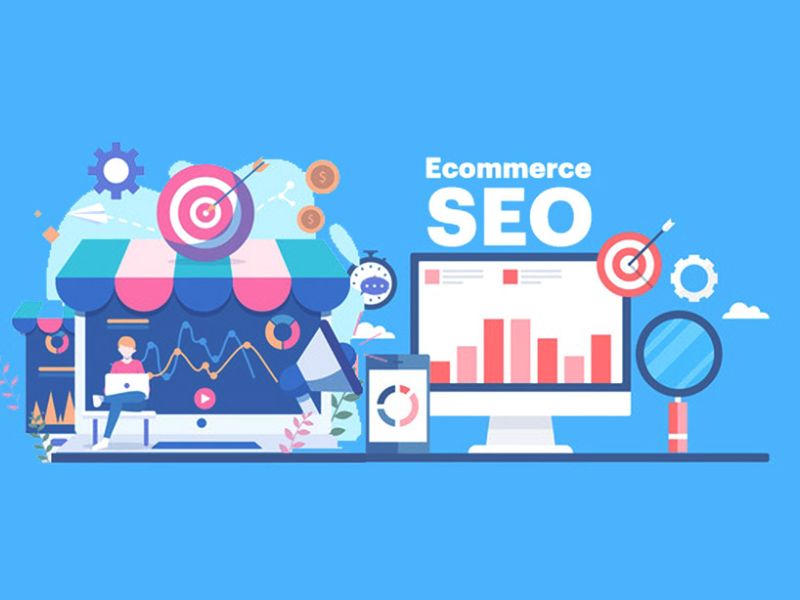
When it comes to keyword research, backlink analysis, and competitor insights, Ahrefs stands out as a versatile and powerful platform. It can help you identify high-value keywords and track your competitors’ strategies, providing actionable data to refine your SEO approach.
Additional tools favored by SEO professionals include Semrush and Ubersuggest, both of which offer robust capabilities for keyword research, rank tracking, and performance optimization. Google Keyword Planner is another excellent resource for identifying search terms with strong commercial intent, ensuring your content aligns with your target audience’s needs.
A combination of these tools will equip you to tackle every aspect of SEO for ecommerce website, from addressing technical challenges to optimizing content and outperforming competitors. By investing in a well-rounded toolkit, you can streamline your workflow, uncover valuable opportunities, and stay ahead in the competitive e-commerce landscape.
13 Tips to Improve SEO for E-Commerce
Enhancing the SEO for ecommerce website is essential for driving traffic, boosting sales, and staying ahead of the competition. Below are actionable tips to optimize your online store, starting with the first three.
Understand Buyer Intent in Keyword Research
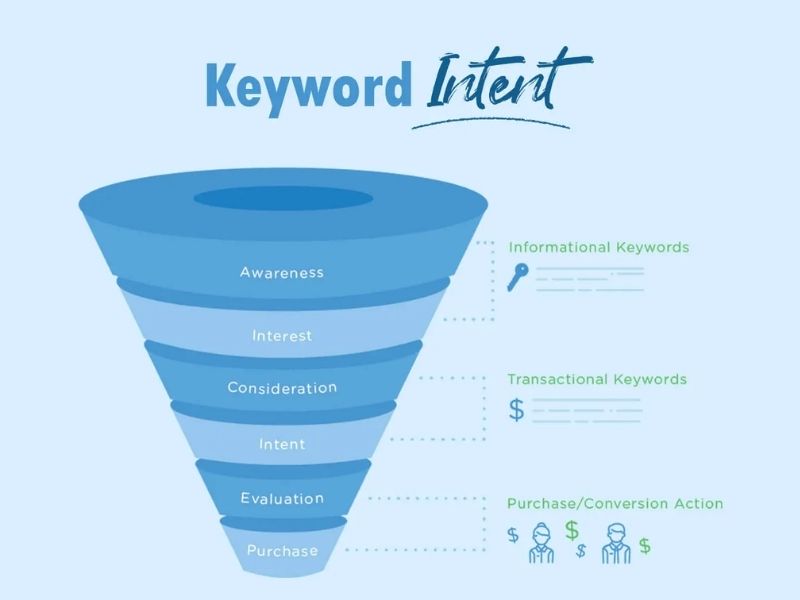
Effective keyword research goes beyond targeting the most popular terms in your industry. It’s crucial to incorporate buyer intent, which reveals the purpose behind a user’s search query. Keywords typically fall into two categories:
- Informational intent: These keywords include queries like “how to” or questions aimed at gaining knowledge. For example, “how to choose the best laptop for gaming.”
- Commercial intent: These keywords signal readiness to make a purchase, such as “buy ergonomic office chair” or “affordable smartphones under $500.”
To identify keyword intent, use tools like Google Keyword Planner, Ubersuggest, or Answer the Public. These platforms allow you to explore what users are searching for and tailor your content accordingly. By aligning your keywords with buyer intent, you can attract high-quality traffic ready to convert.
Incorporate Long-Tail Keywords for Targeted Traffic
While short-tail keywords like “shoes” may attract large search volumes, they often come with high competition and less specific intent. Long-tail keywords, such as “best walking shoes for summer,” offer a more targeted approach. These keywords typically have lower search volumes but higher conversion rates because they align closely with what users are actively seeking.
Long-tail keywords are particularly useful for:
- Breaking into competitive niches.
- Achieving higher conversion rates.
- Helping newer websites rank faster.
- Maximizing ROI with limited budgets.
You can identify long-tail keywords using tools like Ubersuggest, Wordtracker, or by leveraging Google’s “People also ask” feature. Including these in your strategy helps you target users with specific needs, making them more likely to engage and purchase.
Enhance SEO For Ecommerce Product Pages for Better Rankings
Your product pages are the lifeblood of your e-commerce website. By optimizing these pages, you can attract more traffic and encourage higher conversion rates. Focus on three critical areas:
- Product Descriptions: Ensure they are detailed, keyword-rich, and engaging. Highlight unique selling points, and include strong calls-to-action (CTAs) to guide users toward making a purchase.
- Images: High-quality, SEO-optimized images enhance user experience while improving your rankings. Use ALT tags, descriptive filenames, and appropriately sized images to ensure faster loading times and better accessibility.
- Reviews: Customer reviews build trust and provide valuable social proof. Encourage buyers to leave feedback by sending automated follow-up emails after a purchase. Featuring reviews on your product pages not only improves conversion rates but also boosts SEO by adding fresh, user-generated content.
By focusing on these elements, you can transform your product pages into high-performing assets that drive traffic and revenue.
Create a User-Friendly Website Experience
A user-friendly site is essential for creating a seamless shopping experience while boosting your SEO for ecommerce website efforts. The visual appeal of your site is important, but functionality plays an even bigger role in user satisfaction and search engine rankings. A cluttered, confusing website can frustrate users and discourage them from returning, while a well-designed site can keep visitors engaged and encourage conversions.
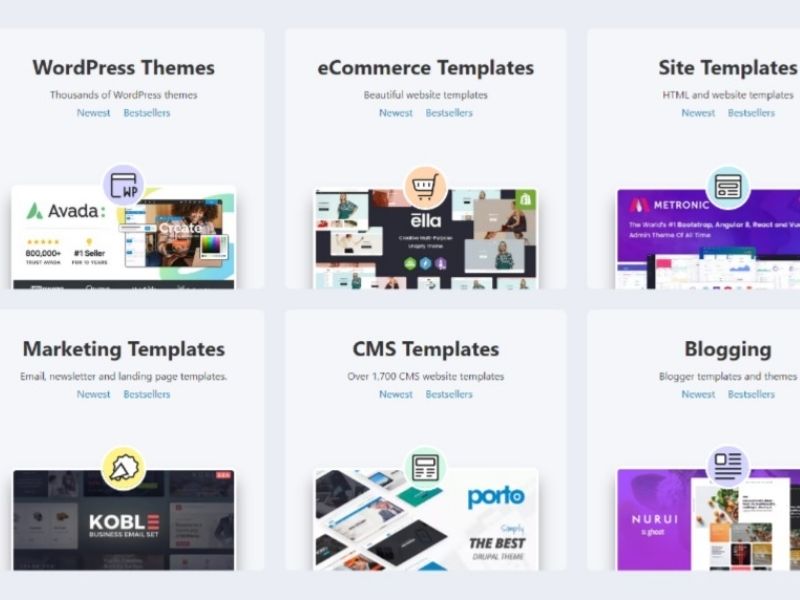
To improve your website’s user experience (UX), focus on key elements like fast loading times, mobile responsiveness, and intuitive navigation. Avoid intrusive ads that block content and make it easy for customers to find what they’re looking for with clear CTAs and consistent design elements. Google prioritizes websites that offer a positive experience, so by ensuring your site is accessible, clutter-free, and easy to use, you can improve your search engine rankings and build trust with your audience.
Simplify and Optimize Your URL Structure
A clean, simple URL structure not only enhances user experience but also strengthens your SEO for ecommerce website. URLs should be short, easy to read, and include relevant keywords. This helps search engines understand your content and rank your pages higher in search results. For example, “www.example.com/baking-articles” is far more effective than a long, complicated URL filled with unnecessary words.
Simple URLs are also easier to share across platforms like social media and other websites. Using breadcrumbs as a navigational tool can further improve UX by allowing visitors to retrace their steps. Additionally, avoid stop words like “and,” “the,” or “of” in URLs, as these can clutter the structure and reduce SEO effectiveness. Keeping URLs concise and keyword-rich ensures they are optimized for search engines and users alike.
Leverage Schema Markups for Rich Snippets
Schema markups are an invaluable tool for enhancing your SEO for ecommerce website by providing search engines with additional information about your content. These HTML tags create rich snippets, which display extra details like product pricing, availability, and reviews in search results, making your listings more appealing and informative to potential customers.
Common types of schema for e-commerce sites include product schema, which highlights key details like images and availability, and review schema, which showcases customer feedback. Price schema allows you to share pricing information directly with search engines, while video schema enhances pages with embedded videos by providing metadata. Implementing these schema markups ensures your content is better understood by search engines and more engaging for users, ultimately driving higher click-through rates and conversions.
Eliminate Duplicate Content Across Your Site
Duplicate content is a common issue for many online retailers, but it can severely impact your SEO for ecommerce website performance. Search engines penalize duplicate pages because they dilute the authority of your site and confuse crawlers about which page to rank. To combat this, use a content management system (CMS) that supports site-wide 301 redirects or add canonical tags to pages with potential duplicates, such as those with similar titles or identical URLs.
In addition, differentiate your product pages by adding unique product descriptions, distinct images, and tailored keywords for each page. Avoid using the same stock descriptions provided by manufacturers, as these often result in multiple e-commerce sites competing with identical content. Taking these steps ensures your content remains unique and optimized for both users and search engines, strengthening your overall SEO for ecommerce website.
Speed Up Your Site to Prevent Ranking Penalties
Page speed is a critical ranking factor that can make or break your SEO for ecommerce website. If your pages take longer than two seconds to load, you risk losing impatient consumers who won’t wait. Slow loading times can also harm your search engine rankings, as speed directly influences user experience and engagement metrics.
To improve page speed, test your site using tools like Google PageSpeed Insights or Cloudflare. Address common issues like large image files, excessive scripts, or a poorly performing web host. Optimize images by compressing them and using appropriate file formats, reduce the number of redirects, and limit HTTP requests. Keeping your site lean and fast ensures visitors stay engaged, which boosts rankings and conversions.
Develop High-Quality Content to Drive Traffic
Content is a cornerstone of any successful SEO for ecommerce website strategy. High-quality, engaging content not only attracts organic traffic but also builds trust with your audience and enhances your reputation as an industry expert. Offering a variety of content types—such as how-to guides, FAQs, user-generated content (UGC), and video demonstrations—allows you to connect with customers at every stage of their journey.
To create impactful content, start by understanding your audience’s needs and preferences through research and surveys. Maintain a consistent content calendar to ensure regular updates, and use A/B testing to optimize elements like titles and layouts. Measure performance metrics to identify areas for improvement and refine your strategy. By consistently providing valuable content, you can increase your site’s authority and keep customers coming back for more.
Build High-Quality Backlinks for Authority

Link building remains a key ranking factor for SEO for ecommerce website, as quality backlinks signal credibility and authority to search engines. Backlinks help your site rank higher for relevant keywords, attracting more organic traffic. To build effective backlinks:
- Write guest posts on authoritative websites in your niche to share valuable insights and link back to your store.
- Use social media platforms to share your content and increase exposure.
- Create infographics, whitepapers, or case studies and encourage others to link to them.
- Issue press releases to announce new product launches or events.
It’s crucial to avoid buying cheap or low-quality links, as they can harm your site’s reputation and violate Google’s guidelines. Instead, focus on earning backlinks naturally through high-quality content and meaningful collaborations to strengthen your SEO for ecommerce website strategy.
Use Sitemaps to Improve Site Navigation
A sitemap is an essential tool for optimizing your SEO for ecommerce website, as it helps search engines crawl and index your pages efficiently. This visual map outlines all the pages on your site, including subcategories and products, making navigation easier for both search engines and users.
You can create a sitemap manually or use automated tools such as Google’s Webmaster Tools or Lucid Sitemap Generator. XML sitemaps are more search engine-friendly, while HTML sitemaps are useful for visitors who want an overview of your site. By ensuring that every page is represented in your sitemap, you can improve your site’s structure and enhance its visibility in search results.
Promote Social Sharing to Broaden Your Reach
While social media sharing doesn’t directly impact search rankings, it plays a vital role in supporting your SEO for ecommerce website. Sharing content on social platforms increases brand exposure, drives organic traffic, and enhances visibility, all of which indirectly boost your SEO efforts.
To maximize social sharing, integrate social media buttons on your product and blog pages, making it effortless for visitors to share your content. Use tools like Buffer or Hootsuite to schedule posts and maintain consistent engagement across your platforms. Social mentions, expanded content reach, and increased backlinks through social sharing contribute to building your brand’s authority and visibility online.
Adapt Your SEO Strategy for Voice Search
Voice search is rapidly becoming a significant aspect of online shopping, and optimizing for it can give your SEO for ecommerce website a competitive edge. With the rise of voice-activated devices like Alexa, Google Assistant, and Siri, more users are searching for products using natural, conversational language.
To optimize your site for voice search, focus on long-tail keywords and question-based phrases that mimic how people speak. For example, instead of targeting “best smartphones,” include phrases like “What are the best smartphones under $500?” or “Where can I buy affordable smartphones near me?”
Additionally, ensure your site is mobile-friendly and loads quickly, as most voice searches are conducted on mobile devices. Structured data, such as schema markups, can also help voice assistants extract relevant information from your site more easily. By embracing voice search, you can capture a growing audience and stay ahead in the evolving e-commerce landscape.
Off Page SEO for ECommerce Website
Off-page SEO plays a pivotal role in enhancing the authority, visibility, and credibility of an e-commerce website. Unlike on-page optimization, which focuses on elements within your site, off-page SEO involves activities outside your website to influence your rankings in search engine results pages (SERPs). For businesses looking to improve their SEO for ecommerce website, these efforts are essential for building trust and driving organic traffic.
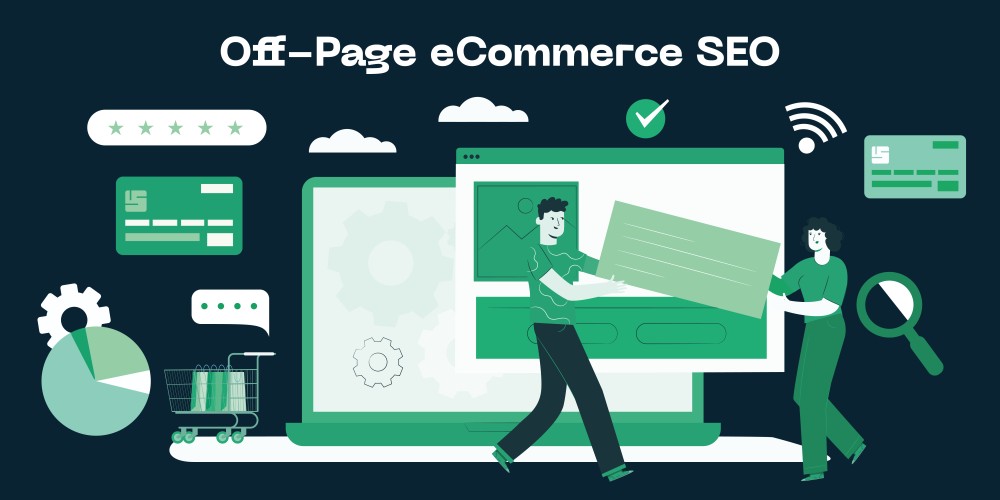
The cornerstone of off-page SEO is building high-quality backlinks. Backlinks from reputable, niche-relevant websites signal to search engines that your site is trustworthy and valuable. Techniques such as guest posting, collaborating with influencers, and sharing valuable content like infographics or case studies can help you earn authoritative links naturally. Avoid buying low-quality backlinks, as they can damage your site’s reputation and result in penalties.
Social media also plays a crucial role in off-page SEO for ecommerce website. Although social shares don’t directly impact rankings, they amplify your brand’s exposure and increase referral traffic. Sharing engaging content, running promotions, and actively engaging with followers help build a community around your brand, encouraging users to link to your site.
Another key strategy is online reputation management. Reviews on platforms like Google, Yelp, or industry-specific review sites not only build trust but also influence local SEO. Encourage satisfied customers to leave positive reviews and address any negative feedback constructively to maintain a strong brand image.
Also, participating in online forums, joining industry-specific groups, and engaging in Q&A platforms like Quora or Reddit can enhance your site’s visibility and authority. By contributing valuable insights and linking back to your site where appropriate, you can attract targeted traffic while establishing yourself as an expert in your niche.
Off-page SEO for ecommerce website is a long-term strategy that requires consistent effort, but it can significantly improve your website’s authority, traffic, and conversion rates over time.
Free SEO for Ecommerce Website
Optimizing your SEO for ecommerce website doesn’t always require a large budget. With strategic use of free tools and techniques, you can enhance your site’s visibility and attract organic traffic without spending a dime.
Start by leveraging free keyword research tools like Google Keyword Planner and Ubersuggest to identify high-intent search terms relevant to your products. Optimize your product pages and meta descriptions by naturally incorporating these keywords, ensuring search engines understand the focus of your content.
Another cost-free strategy is improving your site’s internal linking structure. By linking related product and category pages, you help both users and search engines navigate your site more efficiently, boosting rankings. Tools like Google Search Console allow you to monitor site performance and fix indexing or crawl errors at no cost.
Content creation is another powerful free strategy. Publishing high-value blog posts, how-to guides, or FAQs on your e-commerce site drives traffic and positions your brand as an industry authority. Pair this with engaging your audience on social media platforms to increase brand visibility and encourage sharing of your content.
Lastly, focus on technical SEO by ensuring your site is mobile-friendly and loading quickly. Free tools like Google’s PageSpeed Insights can help identify performance issues to address. With a thoughtful approach, free SEO strategies can deliver measurable results for your e-commerce website.
Should You Partner With an E-Commerce SEO Agency in 2025?
Deciding whether to work with an e-commerce SEO agency in 2025 depends on your business goals, resources, and how comfortable you are handling your own optimization efforts. While it’s possible to manage SEO for ecommerce website campaigns independently, the expertise and time commitment required can often overwhelm small teams or solo entrepreneurs.
An agency brings a wealth of experience, tools, and tailored strategies to the table, helping you navigate the ever-changing SEO landscape. They stay up to date with the latest trends—like optimizing for voice search or AI-driven algorithms—which is crucial to staying competitive. Agencies also have the bandwidth to handle everything from technical audits to content creation, giving you more time to focus on other areas of your business.
On the flip side, hiring an agency is an investment. If your business is still in its early stages or operating on a tight budget, the cost of professional services might feel daunting. In such cases, it might make sense to focus on free or low-cost strategies for your SEO for ecommerce website while gaining foundational knowledge about optimization. As your business grows, partnering with an agency can become a game-changer, accelerating your growth and maximizing your site’s potential.
Ultimately, the decision comes down to whether you value time or money more. If scaling quickly is your priority, an agency might be the right partner to help you dominate search rankings in 2025.
SEO Services for ECommerce Website from OctopusWriters
At OctopusWriters, we understand the unique challenges and opportunities of optimizing an SEO for ecommerce website. Our specialized SEO services are designed to help your online store rank higher, attract more traffic, and convert visitors into loyal customers. With years of experience in e-commerce SEO, we bring a tailored, results-driven approach to each client.
What We Offer:
Keyword Research & Strategy
We conduct in-depth keyword analysis to identify high-intent and long-tail keywords that align with your products and audience. Our strategies ensure your site targets search terms that drive both traffic and sales.
Product Page Optimization
We optimize your product descriptions, images, and metadata to enhance their visibility on search engines while making them appealing to potential buyers. This includes implementing best practices for alt tags, structured data, and user engagement.
Content Marketing for E-Commerce
From crafting compelling blog posts to creating product guides and how-to articles, we help establish your brand as an authority in your niche while boosting your site’s SEO performance.
Technical SEO
Our team ensures your site is fast, mobile-friendly, and free from crawl errors. By optimizing your site’s architecture and improving load times, we enhance user experience and search engine rankings.
Link Building & Off-Page SEO
We develop high-quality backlink strategies to improve your domain authority and credibility. Through guest posts, partnerships, and content outreach, we ensure your site earns recognition across the web.
Data-Driven Insights & Reporting
Transparency is key. We provide detailed reports on your site’s performance, including keyword rankings, traffic data, and actionable insights to refine our strategy.
OctopusWriters is more than just an SEO agency—we’re your partner in achieving e-commerce success. Whether you’re looking to grow organically, overcome fierce competition, or elevate your brand, our comprehensive SEO services are designed to deliver measurable results tailored to your goals. Let us help you turn your e-commerce website into a thriving online destination.
Conclusion
Mastering SEO for ecommerce website is a journey that requires a combination of technical expertise, creative strategies, and consistent effort. From optimizing product pages to building high-quality backlinks, every element plays a vital role in driving organic traffic, enhancing visibility, and boosting conversions. By following best practices and staying updated with the latest trends, your e-commerce business can achieve sustained growth and stand out in a competitive online marketplace.
If you’re looking for professional support to take your SEO strategy to the next level, OctopusWriters is here to help. Reach out to OctopusWriters today and transform your e-commerce website into a powerful revenue-generating platform.
SEO for ECommerce Website – Frequently Asked Questions
What is SEO for an e-commerce website?
SEO for an e-commerce website involves optimizing your online store to rank higher in search engine results, driving organic traffic, and increasing conversions. This includes keyword optimization, improving site structure, creating engaging content, and building backlinks. A comprehensive SEO strategy ensures your store is easily discoverable by potential customers.
How long does it take to see results from SEO for ecommerce website?
SEO is a long-term strategy, and the timeline for results can vary depending on factors like competition, your website’s current performance, and the quality of your optimization efforts. On average, it can take 3-6 months to see noticeable improvements in rankings and traffic. However, consistent and strategic efforts often yield sustainable growth over time.
Is SEO for ecommerce website different from regular website SEO?
Yes, SEO for ecommerce website requires specific tactics tailored to online stores. These include optimizing product pages, managing duplicate content, using structured data for rich snippets, and improving site speed to handle multiple product listings. Unlike regular sites, e-commerce platforms often need a more detailed focus on user experience and mobile optimization.
Do I need a professional SEO agency for my e-commerce website?
While it’s possible to handle basic SEO tasks on your own, partnering with a professional agency can provide expertise, advanced tools, and tailored strategies. Agencies can help with complex tasks like technical SEO audits, competitor analysis, and high-quality link building, saving you time and ensuring better results.
What are the most important SEO tools for e-commerce websites?
Popular tools for e-commerce SEO include Google Search Console for monitoring performance, Google Analytics for tracking traffic, and Ahrefs or Semrush for keyword research and backlink analysis. Other tools like Screaming Frog help with technical audits, while Ubersuggest and Answer the Public provide insights into long-tail keywords and user queries. These tools together empower you to create a robust SEO strategy for your e-commerce site.

